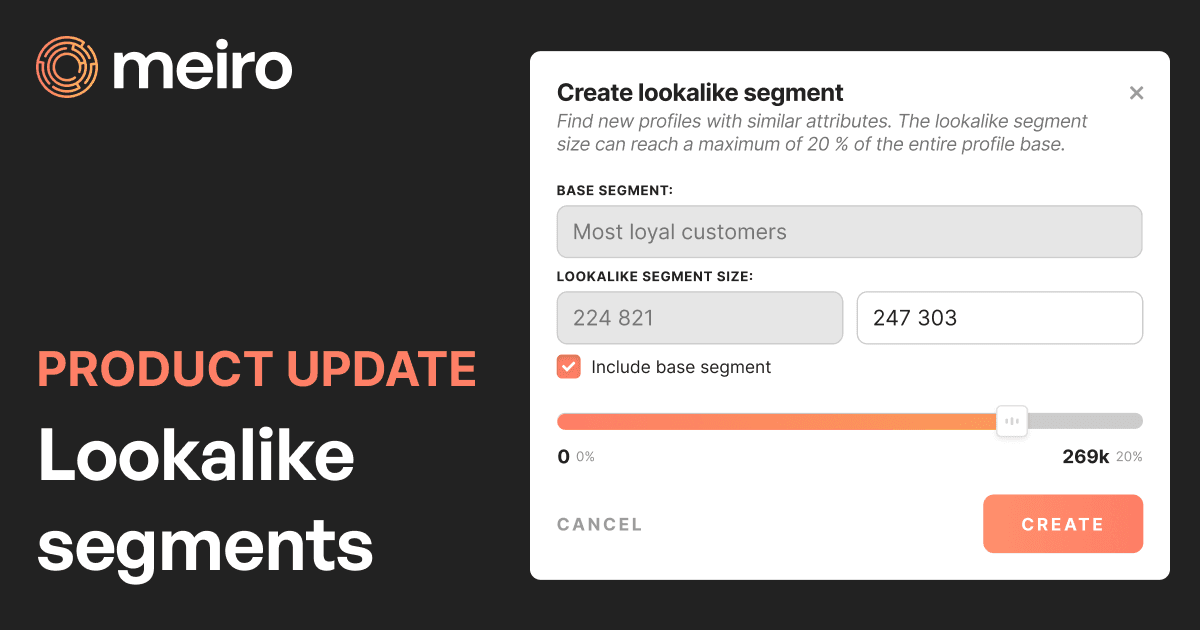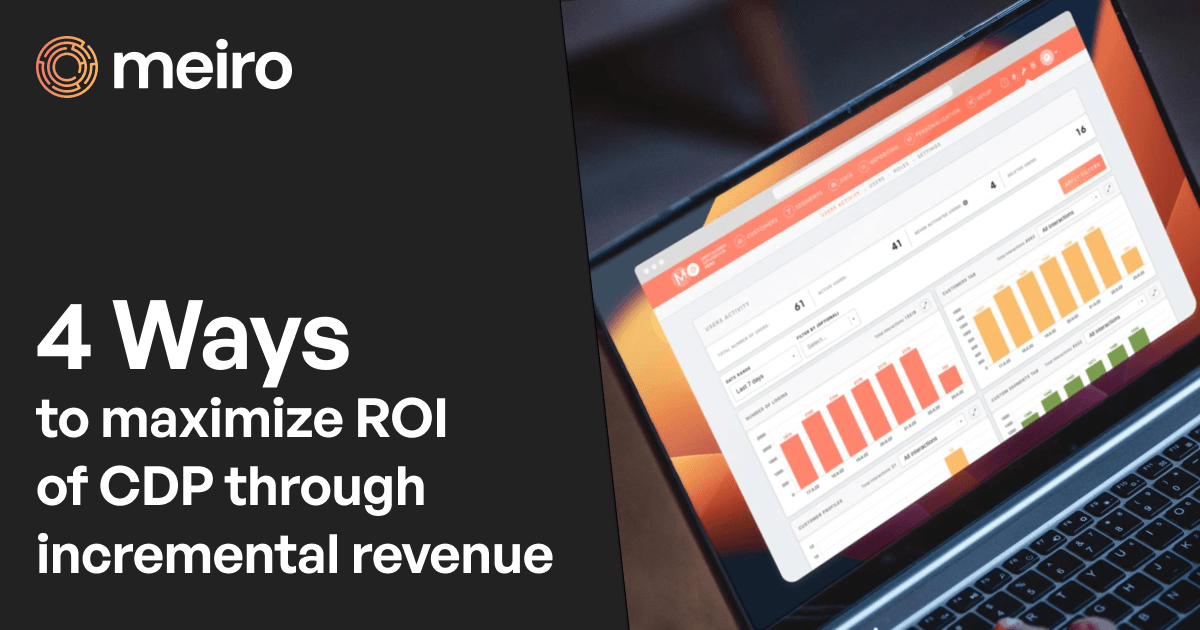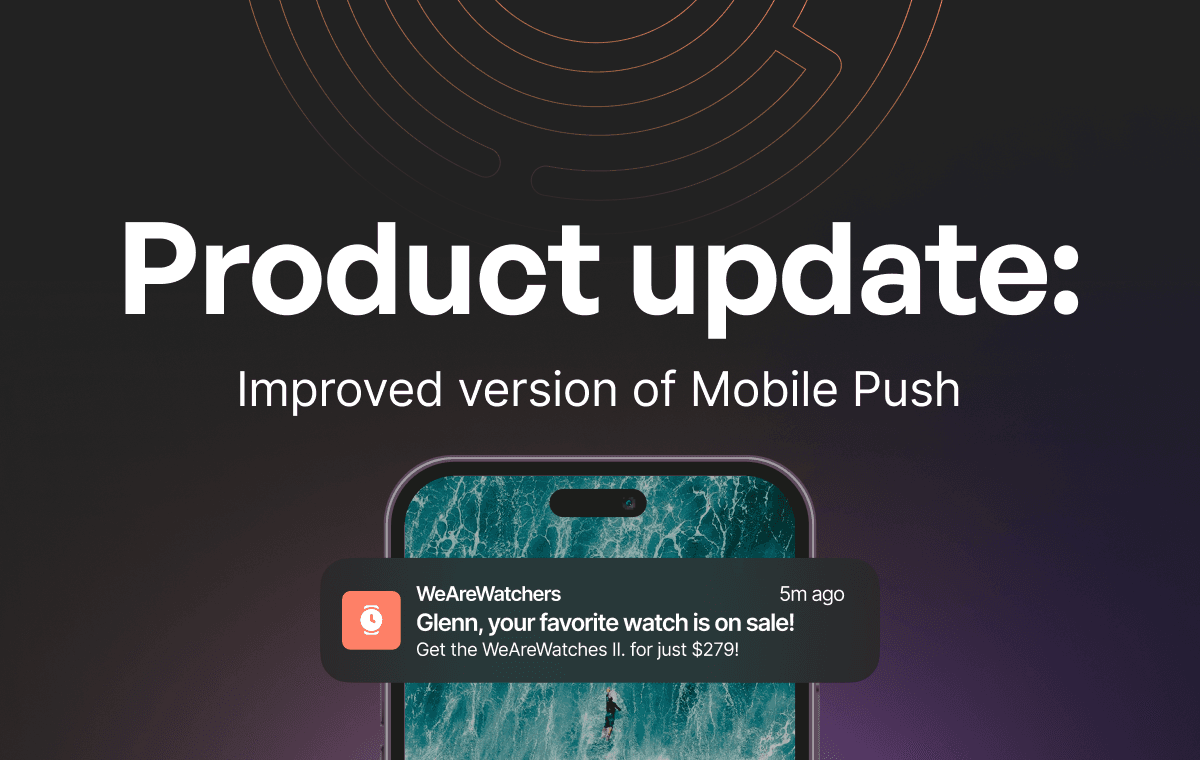Don’t rely on Marketing Cloud to Activate Your Customer Data
Customer data platforms are doing now what marketing clouds have promised for a decade - real-time customer data activation based on rich customer profiles.

CTO | Co-founder
If you think a marketing cloud (MC) can solve all your customer data problem once and for all, you may need to think again. We’ve been talking about this piece in MarTech Today by Tasso Argyros since it came out, because it just nails it on the topic of unified data and the current state of marketing and data management technology. The big thing is first-party data. To date, MCs haven’t had the sophisticated data layer required to connect to first-party customer data sources easily and quickly. Although every MC claims otherwise, in reality, they require extensive IT/consulting support — up to a year or more in complex environments. Even after all of that, marketers’ ability to access and interact with all that data remains very limited. A “data integration layer” typically presented by MCs usually means something along the lines of:
“Oh, we can ingest your data. Here is an FTP and a structured CSV. Create the CSV exactly according to our (usually very sparse) documentation and upload it regularly on our FTP. We will then load it into the system for you.”

That's not data integration
That’s more work...for you. So, in the end, you’re left alone to do the integrations on your own, not the almighty MC. Then, you need to hire consultants...and so on. And, this isn’t a one-time thing. APIs change, products evolve, and more - setting up integrations is one thing, maintaining them is quite another. When you hear any martech vendor shouting something like, “We connect to everything!” beware of what’s behind that claim.
A CDP can do it
Fortunately, an enterprise-grade customer data platform (CDP) provides a simple and elegant answer to all of this. It does so by providing an intelligent hub that takes in raw data from any source and pushes actionable data out to any customer interaction channel. It’s the end of siloed data. Most MCs are engineered to be closed ecosystems. This means that enterprises can’t deploy best-in-class solutions to stay competitive without risking data and channel fragmentation. Of course, this gives MCs tremendous pricing power over their customers; essentially, they profit from their clients’ limitations - limitation they’ve built into the system. The modern marketer deals with unthinkable volumes of data and at speeds that are never fast enough. For enterprise and SME teams alike, it’s no longer a question of having “big data,” now it’s all about using it as quickly and effectively as possible. CDPs are built for high-velocity data at scale.
Imagine you want to have some in-app trigger - “if user does X, then do this,” for example. If you want to execute it using a MC, you need to load behavioral data into the MC, which, as discussed above can be complicated and expensive. If you have data stored in AWS cloud and try to export it anywhere else, you are paying 9 cents for every 1GB. If you have a bit more data, you are paying a lot of money “just for the transfer”. This is not to mention the most important thing - that it takes time. By the time you get the data in the MC, it might be too late to do the thing you wanted to do in the first place. CDPs get you around all of this. As Tasso Argyros says,
“A true enterprise-grade CDP is not just a series of data pipes to connectors. It also enables marketers to interact with all the data, quickly and intuitively test ideas, build and validate segments, and orchestrate them across any and all channels—without waiting on technical resources.”
Amen to that.
Ready to take your personalization game to the next level?
Unleash the full potential of your customer data. Let’s talk!
Spread the love:

As nerdy as they come, V holds the R&D fort in Brno. He is about all things data engineering, analytics and data processing technology. When he is not doing that, he is usually obsessing about coffee or motorbikes.


